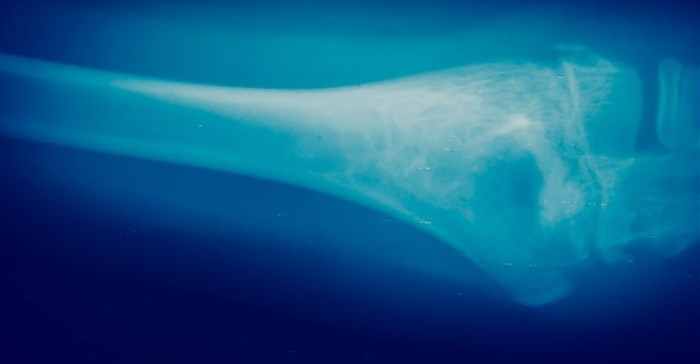
To do this, researchers led by RCSI (Royal College of Surgeons in Ireland) combined copper particles with bioactive glass – a type of glass used for bone repair – and incorporated it into an implant designed specifically for bone repair.
The copper-doped bioactive glass in the porous scaffold implant attracts blood vessels and bone cells, which accelerates bone repair. The copper ions in the implant also prevent bacteria growth. The ability of a single implant to improve blood flow and enhance bone healing as well as inhibit infection without antibiotic treatment is a significant advancement over most existing treatments.
“Osteomyelitis is notoriously difficult to treat. Further work on the back of this research could lead to the complete development of a single-stage, off-the-shelf treatment. This in turn could reduce the need for antibiotics and bone grafting – thus also addressing issues with antibiotic resistance” said first author Emily Ryan, a recently qualified PhD student in the RCSI Department of Anatomy.
People can develop this bone infection from broken bones, severe tooth decay and deep puncture wounds, among other causes. In the worst cases, osteomyelitis can result in amputations or be fatal.
The current treatment for osteomyelitis:
“We are looking forward to developing and testing this treatment for osteomyelitis and for other infections too. This platform system could be further modified and used to deliver a variety of other non-antibiotic antimicrobial metal ion-doped minerals,” said principal investigator, Fergal O’Brien, professor of bioengineering & regenerative medicine in the RCSI Department of Anatomy.